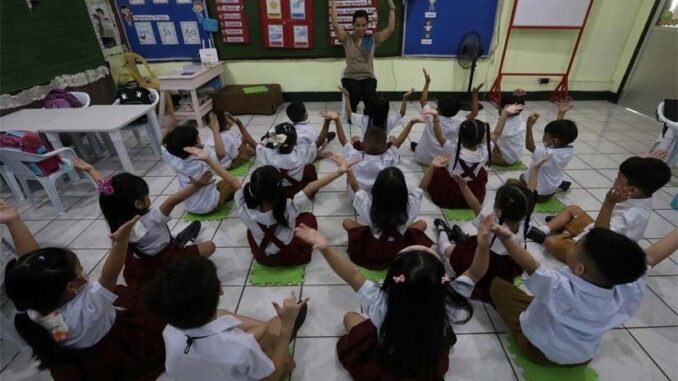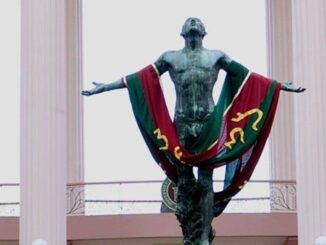
MANILA, Philippines — Teacher groups have denounced Congress for “undermining national development” after lawmakers reportedly gutted the Department of Education’s computerization program — slashing P10 billion from an initiative that could have provided digital resources to millions of public school students.
The reduction — which makes up the bulk of the total P12 billion cut from the Department of Education (DepEd)’s budget next year — leaves public schools even more ill-equipped to bridge the digital divide among students, two teachers groups said in separate statements Friday, December 13.
Both teachers’ groups also pointed out that the budget cut comes amid the country’s ongoing learning crisis, marked by poor performance in international assessments and insufficient educational resources.
This comes after DepEd Secretary Sonny Angara bared on Thursday that his agency’s budget was reduced by P12 billion in the bicameral conference committee’s final version of next year’s budget.
A copy of the bicam report shows that DepEd’s budget went down from P748.6 billion, as approved on final reading by the House of Representatives, to P737 billion. The bicam report itself, which was approved by lawmakers from the House and the Senate on Wednesday, does not include specific line items under each agency.
RELATED: Bicam approves P6.352-trillion budget for 2025
“This substantial budget cut will severely impact our students’ access to digital resources and widen the already massive digital divide among learners,” said Alliance of Concerned Teachers (ACT) Chairperson Vladimer Quetua. “How can we achieve DepEd’s vision of developing 21st century learners when funding for digital education is being slashed?”
The timing and nature of the budget realignment drew sharp criticism from ACT, which accused the administration of political maneuvering.
“The Marcos Jr. administration appears to be taking advantage of the public outrage over VP Sara’s anomalous confidential fund use to quietly push through appropriation of an even larger fund for his own corruption,” Quetua said. “This reveals the systemic corruption within our government, where exposing one official’s misdeeds serves as smoke screen for others to perpetrate their own.”
The Teachers Dignity Coalition similarly called out lawmakers for reducing the funds for DepEd’s computerization program. “This program could have provided the needed gadgets and technology to bridge the digital divide, which became glaringly evident during the pandemic” TDC Chairperson Benjo Basas said.
“By deprioritizing this initiative, Congress risks exacerbating existing inequalities and leaving millions of students unprepared for the demands of a modern, technology-driven world,” he added.
Stinging from the overall cut to DepEd’s budget, Basas characterized the move as tantamount to “neglecting education,” which he said would have “far-reaching consequences, undermining national development and competitiveness for generations to come.”
Angara took to social media Thursday night to express dismay over the cuts. He expressed the same sentiment in a chance interview on Friday.
“We’re quite saddened by this because of course we want our teachers and students to have modern tools,” he said in a mix of English and Filipino.
The education chief had posted on X that the P10 billion reduction “could have funded thousands of computers/gadgets for our public school children,” adding that “infrastructure is important but so is investing in our people and human capital.”
The computerization program, originally allocated P12 billion in the National Expenditure Program submitted to Congress by the Department of Budget and Management, was among DepEd’s priority initiatives presented during budget hearings.
DepEd’s computerization program has repeatedly drawn scrutiny from state auditors, with the Commission on Audit flagging various irregularities in its implementation over the years.
According to COA’s 2019 audit report, only 8,523 out of the 14,342 targeted schools received ICT packages under the program from 2015 to 2019. State auditors attributed this to inefficiencies in the procurement process and logistical challenges, including supplier delays and some schools’ unreadiness to receive and store the materials.
During recent budget hearings in Congress, lawmakers also flagged the agency spent only P2.75 billion out of the P11 billion allocated for its computerization program in 2023.
Angara took over the department in July. He succeeded Vice President Sara Duterte who stepped down from the office she occupied since 2022. Leonor Briones served as secretary from 2016 to 2022 under Duterte’s father, former president Rodrigo Duterte.
A 2022 study by state think tank Philippine Institute for Development Studies (PIDS) revealed that public schools still face significant shortages in computer packages and internet access.
PIDS found that DepEd consistently failed to meet its targets for delivering computer packages to schools, with internet connectivity remaining low across all grade levels. The think tank pointed to “public investment problems” and inconsistent implementation of DepEd’s digital initiatives as key factors behind these shortfalls.
Some Filipino students’ weak computer literacy is also believed to have played a part in the Philippines’ low score in the recent Programme for International Student Assessment, where the country scored in the bottom 10 out of 81 participating countries.





Be the first to comment